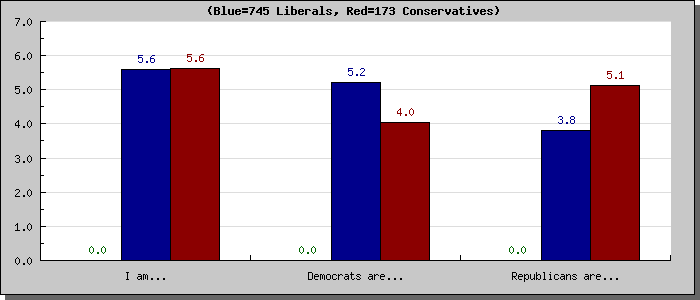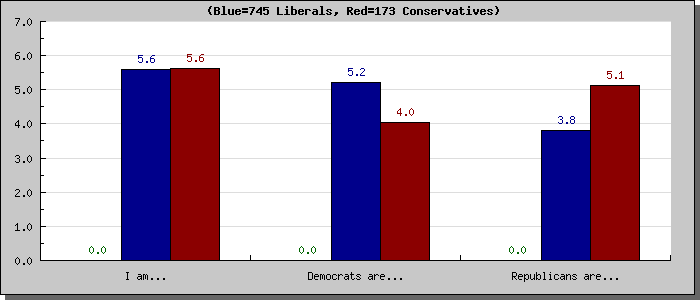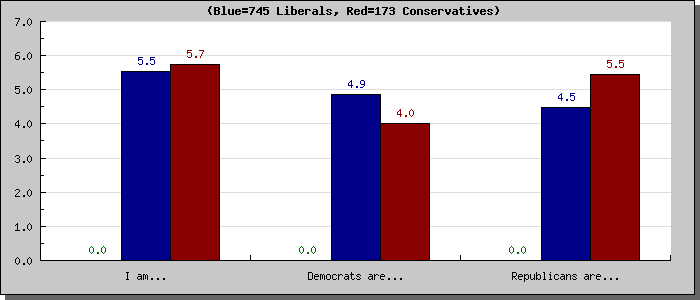The Psychology of the JournoList “Scandal”: Mirror Image Stereotypes
As a regular reader of political blogs, I could not help but notice that a number of my favorite sites were writing about the same thing, specifically, their participation in a discussion group called JournoList, which included numerous media members such as Nate Silver of fivethirtyeight and Politico writer Ben Smith, both of whom I read with some regularity. These posts were prompted by the publication of numerous emails from this largely liberal group by a conservative blog, the Daily Caller, which recently ran this story (one of many on this topic):
On Journolist, there was rarely such thing as an honorable political disagreement between the left and right, though there were many disagreements on the left. In the view of many who’ve posted to the list-serv, conservatives aren’t simply wrong, they are evil. And while journalists are trained never to presume motive, Journolist members tend to assume that the other side is acting out of the darkest and most dishonorable motives.
Reading other people’s private emails evokes an embodied moral reaction in me. Maybe it’s motivated reasoning as a liberal myself, but I would hope that I’d find it similarly distasteful for a business to make money by posting the private emails of conservatives. Still, I think that the above paragraph is likely correct for some (not all) members of the list, along the lines of this wonderful post by Peter Ditto of UC-Irvine, concerning the ways that liberals and conservatives mirror each other in their negative attributions. In it, he notes that a “mirror image pattern, two opposing sides in an ideological struggle having virtually identical stereotypes of each other, is a common characteristic in intergroup relations.” The idea is that when you find these mirror image perceptions, they are often more a function of partisanship and group conflict than reality.
It’s not hard to find quotes from conservatives that mirror the above observation of journolist members. Consider this article entitled “Why does Obama hate America so badly?” My guess is that Democrats don’t hate the economy and Republicans don’t hate poor people, yet these mirror image negative attributions of malicious intent exist.
Here is the same story in graph form, using our yourmorals.org data, where liberals and conservatives rate both republicans and democrats on “warmth”…
and on “competence”….
Hardly surprising, but liberals think Republicans are cold and incompetent, while conservatives think Democrats are cold and incompetent. (strangely, we generally think that we ourselves are both more warm and more competent than the average member of either party..:))
I’m sure that cherry picking any person’s email archive would lead to embarrassing material, but I would agree with Andrew Sullivan’s take on JournoList:
The far right is right on this: this collusion is corruption. It is no less corrupt than the comically propagandistic Fox News and the lock-step orthodoxy on the partisan right in journalism – but it is nonetheless corrupt…….
…..I’m glad Journo-list is over. It should never have been begun. I know many of its members are good and decent and fair-minded writers. But socialized groupthink is not the answer to what’s wrong with the media. It’s what’s already wrong with the media.
These mirror image negative perceptions are an inevitable part of intergroup conflict, so rather than morally judging the individuals involved for behavior that is likely quite common, I prefer to take this as a cautionary tale for all who want better policy. On both sides of the aisle, we should be seeking to recognize and reduce these biases, not amplify them through ideologically homogeneous discussions, such as what appeared to occur on JournoList.
– Ravi Iyer






